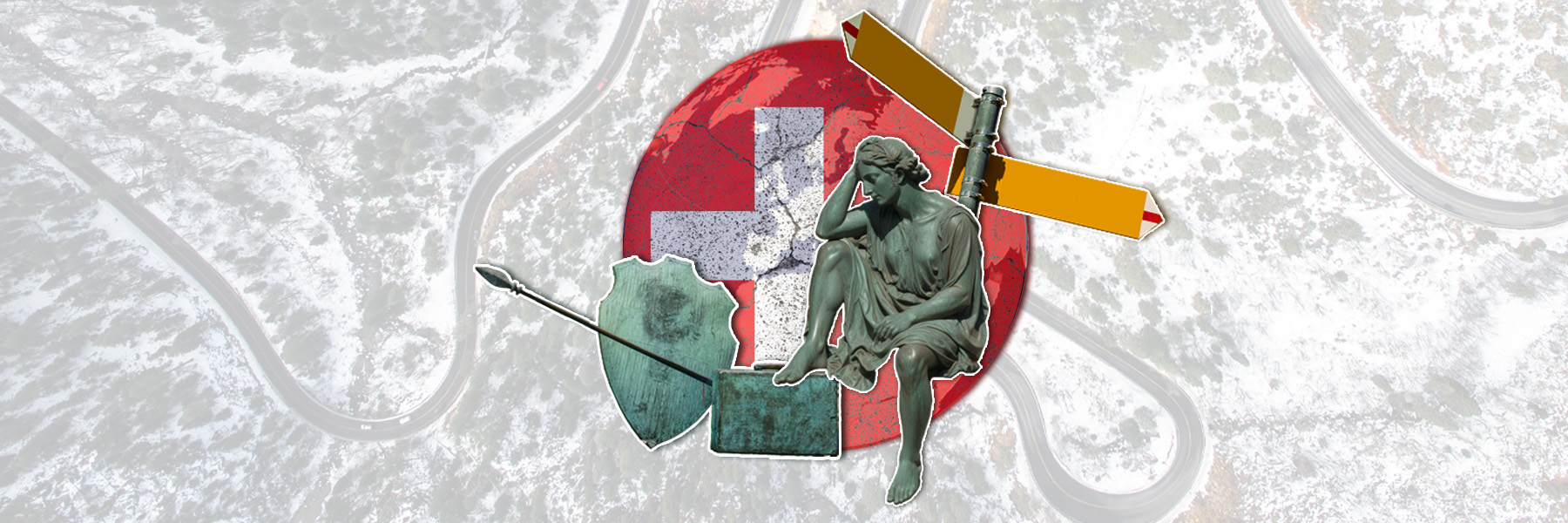
What role should Switzerland play in international peacebuilding?
To play a meaningful role in peacebuilding, Switzerland must have the right international profile, political will, and – above all – acceptance from the parties involved in a conflict. Does the country still fulfil all of these conditions?
It’s a belief held by some that peacebuilding is as quintessentially Swiss as cheese and chocolate – an extension of the humanitarian role that Switzerland has played since Geneva’s Henry Dunant founded the International Committee of the Red Cross (ICRC) in 1863. While there is a historical link between Switzerland’s commitment to humanitarianism and its role in peacebuilding, the two do not necessarily go hand in hand. The same is true for neutrality, whose modern form also dates from that period.
The days when Switzerland – often out of self-interest – stayed out of conflicts in neighbouring countries are over. Back then, neutrality meant acting as a good Samaritan and offering refuge to foreign troops or facilitating prisoner exchanges.
Europe has long ceased to be the centre of the world, and the dynamics of violent conflict have grown more complex. These days, building peace requires more than simply waving a flag. Neutrality, too, is no longer enough – and Russia’s narrative that Switzerland forfeited its neutrality after the invasion of Ukraine by adopting European Union sanctions has found traction in today’s global information war.

More
What does the future hold for Swiss neutrality?
Growing competition
Geopolitical changes in recent years have also brought about the ascent of new actors, such as Oman and Qatar, that want to position themselves as bridge-builders and mediators out of regional or global political interest. Norway, too, has played an active and successful role in resolving international conflicts in recent decades, undeterred by its membership in the NATO military alliance.
The good news for Switzerland’s peacebuilding efforts is that despite – or perhaps because of – current upheavals in the global security landscape, there is a significant and growing need for states that do not take sides but want to contribute to conflict resolution. The less encouraging news is that competition is on the rise. Switzerland can no longer count on the world seeing Geneva as the only venue for peace. In the future, it will need to prove itself more than ever as a credible and reliable force in peacebuilding.
Switzerland should make every effort not to let short-sighted political ambitions jeopardise the political capital it has spent years building up internationally. Its values lie in upholding international law and protecting human rights, including international humanitarian law in times of armed conflict.
In practical terms, this means that there can be no alternative for Switzerland but to unequivocally condemn Russia’s military aggression against Ukraine. That same clarity must also apply to condemning human rights violations committed by Hamas and Israel.
Moreover, banning warring parties outside of United Nations Security Council resolutions, as Switzerland did when it banned Hamas, does not fit the profile of a peace advocate. In cases like these, foreign policy should take precedence over domestic politics, and here the government must assume its responsibility. After all, peacebuilding is one of Switzerland’s foreign policy priorities. It is even part of the Federal Constitution.
Does Switzerland have what it takes?
A growing demand for peacebuilding has not made the task easier. In wartime, applying the norms of the UN Charter is subject to political manoeuvring within the UN Security Council even more than usual.
This is why states like Switzerland, which enjoy a degree of credibility and impartiality, matter more than ever. Its first-ever term on the Security Council, which recently came to an end, has shown Switzerland in a positive light. In particular, it contributed meaningfully to pushing for better protection of civilians in warzones, fostering the use of new technology in peacebuilding, and linking environmental protection with international security. Despite warnings from conservatives, neutrality has not proven to be a disadvantage after all.
Switzerland has shown in recent years that neutrality and a commitment to clear values are not mutually exclusive. This combination laid the groundwork for successfully hosting the Ukraine peace summit in Bürgenstock. Announcing the meeting a year in advance was a bold move. Making it happen required the mobilisation of all of Switzerland’s political networks – and a government willing to withstand considerable pressure from actors intent on derailing the event.
If Switzerland wants to continue to play a meaningful role in international peace efforts, it will need to hold on to that same ambition and resolve. It should continue to engage in areas of conflict beyond its traditional good offices – as the Bürgenstock summit demonstrated – without compromising its core values.
Adapted from German by David Kelso Kaufher/gw

More
Our newsletter on geopolitics

In compliance with the JTI standards
More: SWI swissinfo.ch certified by the Journalism Trust Initiative






























You can find an overview of ongoing debates with our journalists here . Please join us!
If you want to start a conversation about a topic raised in this article or want to report factual errors, email us at english@swissinfo.ch.